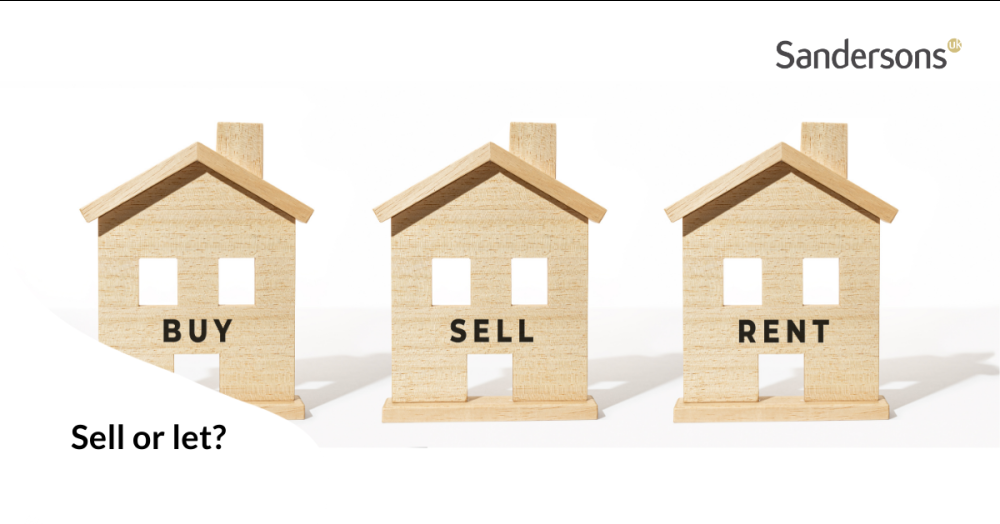When you move home, the decision of what to do with your existing property is a very important one. Most people find that they have to sell their current property, especially if extra money is needed to buy a new one but for some, holding onto it as an investment is an option.
It is likely to depend on your personal circumstances, financial goals, and priorities. Here are some factors to consider:
Your financial situation:
If you need quick cash or want to pay off debts, selling your property might be a better option. However, if you can afford to hold onto the property and have a long-term plan, letting it out might be a good source of passive income.
Market conditions:
The current state of the property market in your area can affect your decision. If the market is strong and demand is high, you might be able to sell your property quickly and for a good price. On the other hand, if the market is sluggish or you're in a buyer's market, it might be harder to sell, and renting it out might be a better option. Speak to a knowledgable local agent and check out
local market insight reports for both sale and let.
Your future plans:
Consider your long-term plans and whether you might need the property in the future. If you or a family member plan on living in the property again someday, you might want to keep it rather than selling it. However, if you're sure you won't need it in the future, selling might be the better choice.
Maintenance and management:
Renting out a property can be a lot of work, from finding tenants to handling repairs and maintenance. You can appoint an agent to manage the tenancy on your behalf which takes the pressure off you. You would however need to budget for unexpected maintenance costs depending on the age of the property such as needing a new boiler, fitted appliances that are landlord responsibility, windows etc.
Pros and cons of each option:
Benefits of selling
- Access to instant cash and means that you can buy a new property with far more money than you would have if you decide to let your old property
- If prices are decreasing in the property market and you want to extract the best possible price for your home, then selling is also advised
Cons of selling
- Owning and therefore renting a number of properties gives you extra security in the future and is a fantastic asset to have
- You lose the flexibility and may later regret your decision- if for example you bought a new home with a partner and things don’t go to plan you don't have the property to go back to so it may cost you more to buy again or rent elsewhere
Benefits of letting
- If you are moving temporarily, then letting out your old property gives you the option of still being able to move back into your old house
- If you are confident that your property is a good rental property, then over time you can create a valuable asset with a regular income
- If prices in the property market rise, then you will be able to sell your old property in the future for profit
Cons of lettings
- Owning multiple properties can bring complications if mortgages are involved. You must check your mortgage as some do not let you rent out your house. If you do have to change your mortgage to allow for letting, you will have to consider new mortgage fees.
- You may be liable for a higher stamp duty if you are buying an additional property
- Letting an old property and owning a new property means you will be financing two properties. You need to ensure that you are financially secure – will you be able to pay for two mortgages?
- There will be periods where no-one is in the property and therefore you will not be receiving any money
- Managing a property takes a lot of time and responsibility. You can instruct a letting agent to do this for you, but they will take part of the rental income.
It’s your decision
There are a number of advantages and disadvantages when it comes to selling or letting a property and you need to make the decision based on you and you only. The first step is to decide whether you can afford it. As well as the house itself, there are also a number of other costs associated with letting a property. You also need to remember how time-consuming being a landlord can be.
However, the benefits of extra revenue earned from any rental properties cannot be denied. If you are unsure about what to do and would like to speak to an expert,
please get in touch today.

